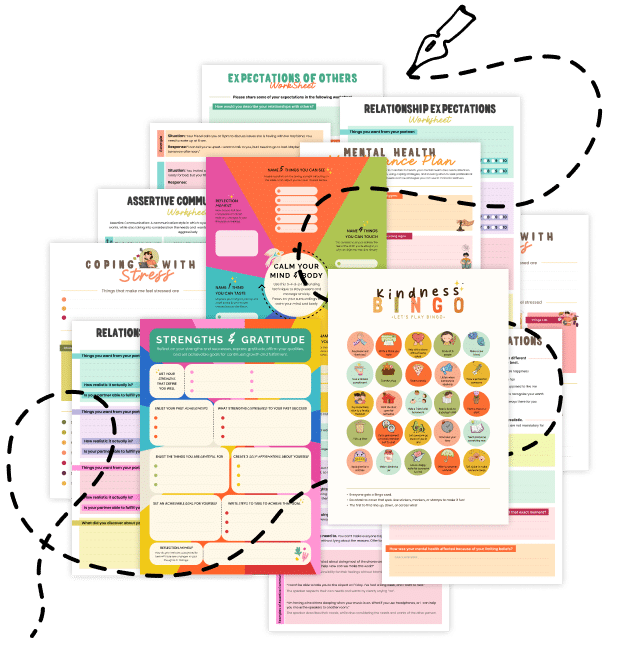20 Things You Should Know About Dopamine Fasting
Looking to break free from constant tech distractions and pleasure-seeking habits? Dive into these 20 insights on Dopamine Fasting—what it is, how it works, and tips for doing it effectively.
1. What Is Dopamine Fasting?
Dopamine Fasting is a self-imposed break from activities that trigger frequent dopamine hits—like social media, junk food, gaming, or other habitual pleasures. The goal is to reset your brain’s reward system, reduce compulsive cravings, and regain focus.
2. The Dopamine Misconception
Dopamine often gets labeled the “pleasure chemical,” but it’s really about anticipation and motivation. When you see likes on social media or reach for a snack, dopamine fires, nudging you to repeat the behavior.
3. Why People Try It
Constant dopamine spikes from quick-fix rewards can lead to overstimulation and reduced sensitivity. Some people feel more anxious, distracted, or reliant on external “hits.” Dopamine Fasting aims to break that cycle.
4. It’s Not an Actual “Fast”
You can’t literally stop your brain from producing dopamine. The term “fast” is more metaphorical, referring to abstaining from or drastically reducing certain high-stimulation activities.
5. The Science Behind It
When you repeatedly flood your brain with dopamine, your receptors may become less responsive. Over time, this can heighten your tolerance, requiring more stimulation for the same payoff. A “fast” could help normalize these reward pathways.
6. Common Activities People Avoid
- Social Media apps
- Sugary or Processed Foods
- Video Games or binge-watching TV
- Online Shopping or impulse buying
- Excessive Device Use (constant notifications)
7. How Long Should It Last?
There’s no one-size-fits-all. Some people do short daily breaks (e.g., 1 hour of phone-free time), while others may opt for weekend or multi-day detoxes. Consistency and awareness are key.
8. Benefits People Report
- Increased Focus: Fewer distractions lead to deeper work or study sessions.
- Reduced Cravings: Over time, junk food or social media binges feel less appealing.
- Improved Mood: Some experience greater emotional stability and less anxious restlessness.
9. The Role of Mindfulness
During dopamine fasting, it’s crucial to observe cravings and impulses. Mindfulness helps you spot the urge to check social media or snack and consciously choose not to act on it.
10. Setting Clear Boundaries
Define the rules of your fast in advance. Are you only cutting out social media, or do you also plan to avoid Netflix, sugary snacks, or online shopping? Clarity makes it easier to stay consistent.
11. Physical vs. Psychological Hunger
Dopamine fasting isn’t about skipping necessary meals—it’s about avoiding reward-driven snacking or mindless eating. It’s helpful to distinguish between genuine physical hunger and bored/emotional cravings.
12. Productivity vs. Mental Health
Some use dopamine fasting purely for productivity—fewer temptations mean more focus. Others want a mental reset, seeking calm and clarity. Regardless of the motive, balanced expectations prevent disappointment.
13. Misconception: It’s Asceticism
Dopamine fasting isn’t about living a joyless life. It’s about recalibrating the brain’s reward system so you can enjoy activities in moderation without feeling controlled by them.
14. Social Challenges
When friends invite you to game online or go to a restaurant known for indulgent desserts, boundaries can get tricky. Sharing your goal or planning alternative activities can help maintain your fast.
15. Post-Fast Reintegration
Once the fast ends, the next step is intentional reintroduction of some activities. The aim is to strike a healthy balance—enjoying life’s pleasures without slipping back into compulsive behavior.
16. Potential Pitfalls
- All-or-Nothing Thinking: Trying to quit every habit at once can be overwhelming.
- Unrealistic Goals: Expecting an instant “brain reset” in one weekend might lead to frustration.
- Social Isolation: If your fast inadvertently cuts you off from necessary communication, it may do more harm than good.
17. Alternative Approaches
Not everyone does a strict dopamine fast. Some practice digital minimalism, social media sabbaticals, or limited device use after a certain hour each day. The core idea is reducing overstimulation, not eliminating it entirely.
18. Physical Activity During Fasts
Some people find exercise, yoga, or walking a helpful substitute. These activities still release dopamine but in a more gradual and regulated way, supporting physical and mental well-being.
19. Stress, Anxiety, and Dopamine
High stress or anxiety can drive people to seek quick dopamine fixes. Recognizing this link helps you address underlying emotional needs—possibly with meditation, journaling, or therapy—rather than escaping into screen time.
20. Related Topics to Explore
- Directed Attention Fatigue: Why constant multitasking depletes focus.
- Cognitive Defusion: Mindfully detaching from impulses and cravings.
- Chronotype Alignment: Honoring your natural sleep/wake cycle can regulate mood and cravings.
- Mind-Wandering Mode: Letting the mind drift can spark creativity without relying on digital stimuli.
Quick Tips for a Successful Dopamine Fast
- Start Small: Try a few hours of device-free time before aiming for a weekend detox.
- Plan Substitutes: Replace mindless scrolling with reading, drawing, or calling a friend.
- Communicate Clearly: Let friends or coworkers know you’ll be less available.
- Track Your Feelings: Notice boredom, restlessness, or anxiety—and reflect on why it arises.
- Reintroduce Gradually: Once the fast ends, be mindful of how and when you indulge.
A Dopamine Fasting routine can be a useful tool for rebalancing your brain’s reward system, reducing compulsive behaviors, and regaining control over your time and attention. It’s not about depriving yourself of all pleasure; it’s about recognizing how repeated dopamine hits shape your habits and making deliberate choices to break unhelpful cycles.
Share this article with friends or family members curious about managing their digital or dietary habits. They might find that even a short break offers refreshing clarity and new perspectives on what truly enriches their lives!

